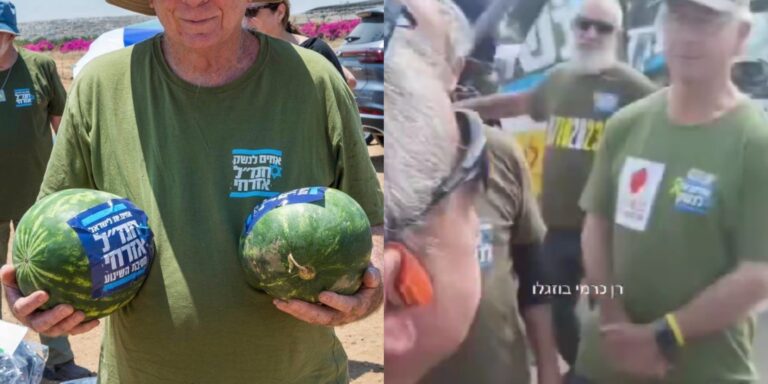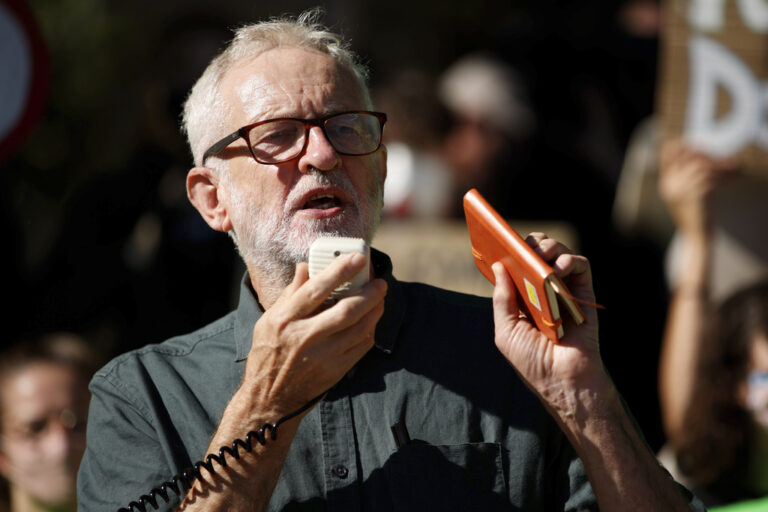 [From this weeks Yated – Excerpts from a letter from Sholom Mordechai Rubashkin to his children]
[From this weeks Yated – Excerpts from a letter from Sholom Mordechai Rubashkin to his children]
Dear Kinderlach,
In response to your questions about Pesach here in prison, here is a glimpse of some of what happened over Yom Tov. Boruch Hashem, I was able to be mekayem the mitzvah of bedikas chometz in cell number 217. From just about one position squatting on the floor, all four corners of the cell and the floor in between could be searched perfectly. Using a paper towel wound around a pencil for a feather, I brushed into a plastic spoon whatever chometz I found, gathered it into a paper bag, tied it up and put it on top of the locker.
Our good chaplain arranged for a proper biur chometz, kedas u’kedin, where we were able to burn our chometz erev Pesach. With great excitement we said kol chamiro vechamira and the yehi razton, asking Hashem to be mevaer min ha’olam all the klipos and those who are metzaer Yidden rachmonoh litzlan, and to bring the world into a state of taharah to serve Hashem.
I was so glad I was able to visit with you and Mommy a few hours before yom tov. Also, Reb Eli Nosson Silverberg and Reb Yoiel Shwartz came with their kinderlach, and we had a happy lively discussion about the Hagadah.
Standing Tall
After returning to the unit, it was time to start the preparation for yom tov, which basically meant changing into chometz- free clothes. Surprisingly, a few inmates noticed a difference in my appearance and actually made some friendly comments about how the look was different, even though the clothes themselves were no different. But really he was right; Pesach is a time when we Yidden live with the feeling of cheirus and we stand a little taller and straighter, and that is probably what he meant.
To be honest, it was difficult to be able to nurture this feeling while surrounded with the darkness and coldness of this place. It was after the P.M. count in the prison and the inmates were exiting their cells into the common area to be counted. This is a large but very overcrowded room due to the heavy population in the unit. It is surrounded outside by tall cement walls, with a few windows blocked by heavy metal bars. People of all different nationalities in various states of dress and undress are shifting about or sitting aimlessly, and crude shouts fill the air.
My Eyes Yearned For the Sights
I was ready for yom tov and as the sun was about to set, my eyes yearned to see some sights of the kedusha of Pesach. It is so much easier to feel that kedusha when we can see other Yidden dressed in their yom tov clothes, and share a simple “gut yom tov” or “a kosher freilechen Pesach”, to raise the ruach and refresh the neshama.
Even gazing at the white-covered yom tov table, proudly displaying its priceless treasures, the Hagadah symbolizing liberation by Hashem and the bottles of wine and the shmurah matzos and maror on the table… All that gives a joyous lift to the heart of a Yid.
Of course, not a trace of these happy sights exist in the prison unit. Instead, all the senses are violated with the extreme opposite. The sight of enslavement and constraint are visible all the time, with the double rows of high cement walls and fences surrounding the prison, the bottom and top rows covered in rolls of razor-sharp barbed wire.
The sights of all that is unholy assail one’s eyes, along with all the tumoh of Mitzrayim buzzing at a person from the many monitors hanging above.
The ears ache as they come under the non-stop barrage of the loud vulgar talk, peppered by screams and shouts of nothingness, amplified and echoing off the high cement brick walls.
And at mealtime, the smell of cooking food in the microwaves spreads across the unit, the treif smells so pungent and nauseating you have to stop breathing at times to avoid throwing up.
Imagine being immersed in this environment and contrast this with the electrified feelings of erev Pesach and zman cheiruseinu as it is supposed to be experienced. The only aitzoh is to cling to Torah ohr with all one’s might and imagination; that alone is capable of bringing warmth and light and meaning inside this place.
Thank You, Hashem
Baruch Hashem, we have been learning and preparing spiritually for yom tov, and the neshomo is alive with the excitement of the moment about to seize the world. And this sanctified moment exists here, too, in Otisville, as it is for every single Yid wherever Hashem Yisborach places him. Even here, as hard as the conditions are, that sanctity can be found if one tries hard enough.
There is the great anticipation of fulfilling the duty of thanking Hashem for taking us out of Mitzrayim and making us a free nation. Thank you, Hashem! My heart is full of gratitude, even here.
Shortly before the time of licht benching, I call you to say gut yom tov… After speaking to each of the kinderlach and to my parents and family members who are together for Pesach, wishing each other a guyom tov, we end with singing “Mimitzrayim gealtanu mibais avodim pedisonu, asking Hashem to grant our cheirus right here, this very day, and to liberate me from prison.
‘Wandering Jews’
At 6.30 p.m., the call comes for the “move;” the doors open and we walk to the chapel.
There we have another reminder of enslavement and “wandering” because, despite prior arrangements, there is no room available for us Yidden to hold a seder. We stand around holding our precious matzohs and hagodos, wondering where to go, what to do. Eventually we learn that Chapel A, where we were supposed to be holding our seder, is closed for Pesach due to renovations.
We look at each other helplessly. It’s almost shkiah. Eventually, about seven minutes before shkiah, after hurried negotiations on the part of the chaplain, a small room that was in use by others is vacated and we are finally able to daven mincha.
Although we are less than a minyan, we daven and sing Halel with tremendous simcha, and then gather around the one table set up for the seder. I start by encouraging everyone to put aside all our aggravation and woes and focus on the mitzvah of the day: to tell the story of yetzias mitzrayim and freedom, something every person in the room can relate to.
From Smooth Talk To Slave Labor
One limud they seemed to especially connect with is the concept of how the “peh rach,” the soft- spoken and smooth mouth of Paroh, tricked the Yidden into changing their status from a proud, free people devoted to Hashem Yisborach to becoming slaves.
How could it happen that the peh rach of soft talk was capable of turning into the harsh and bitter decrees that enslaved the Yidden with avodas perech?
Maybe it’s because the Yidden came to Mitzrayim as a free people, proud of who they were, but after a while began to admire their host country. They helped it grow and prosper and along the way, began to be dazzled by this “advanced” culture and civilization.
Remember when the shvotim came with Yaakovv to Mitzrayim, they explained to Paroh that they could not accept positions in the government or army, because they were simple shepherds? This most important lesson of a Yid in golus was lost after many years of the living with the Mitzriyim.
When Paroh approached them and suggested they help him build his country,
Even though this meant they would need to leave their yeshivos and life of learning, they agreed. The idea of having a role in building up the great Egyptian culture appealed to them.
They were gradually fooled into thinking there was some beauty and great value in the Egyptian way of life. So when smooth-talking Paroh came with the brick around his neck and asked the Yidden to join him in his work, they fell into the trap, instead of using the same argument of Yaakov ish tam, yoshev ohalim. A Yid needs to sit in the tents of Torah and learn and serve Hashem Yisborach.
They began working with the excitement that they should have reserved for avodas Hashem. Then the soft-spoken Paroh swiftly became the slavemaster who was revealed as an evil snake, literally bathing in the blood of Yiddisher kinder.
Turning Point
This barbarity, and the Yidden’s realization of the wickedness of the culture they once admired, shattered the hold Mitzrayim had over them. Combined with the nissim of Hashem Yisborach who showed them His total control over nature, these events made the Yidden capable of rejecting the tumoh of Mitzrayim. They followed Hashem into the desert, blindly, with the emunah of a child who knows his Father even before he can understand the greatness of his father…
This limud somehow resonated with those who were with me and one person repeated it to someone else the following day. We also spoke about more things in the time we had. I hope to tell you more–and to hear more from you–in another email.
I love you and miss you all,
Tatty.
(YWN World Headquarters – NYC)











5 Responses
How sad. I pray that he be released soon.
Today is Hod sh’b’Gevurah – Hidden Beauty deep within the Din… Hashem Yazor.
Hashem, please aid him with brining about an immediate release from Prison
And let us not forget where he is. In America the “country of Chessed” sic. Now he is going to be many years without a miracle in jail. However it is too late to help him. What about however the millions of Jews, hundreds of thousands calling themselves religious, that said in America, “next year in Jerusalem” yet prefer America over the land that their religion states is so bloody important? Oh yes they are not criminials. And so Sholom Rubishkan also thought of himself. But even if a particular Jew does not get arrested this year what about opening your eyes to what your chrisitian neighbors really think about you?
Marvafan, the same thing could happen in Israel too. There are many innocent people in prison there. And unlike the USA, in EY one may be imprisoned without even being charged with anything, or one may be charged simply with teaching Torah! At least in the USA the right to teach Torah is absolutely protected, no matter how much people may dislike what it says. Seforim that are banned in Israel can be openly published in America. No system is perfect, and the American one has many things wrong with it, but compared to other countries, including Israel, it’s still pretty good, despite what’s happening to a tzadik like Sholom.